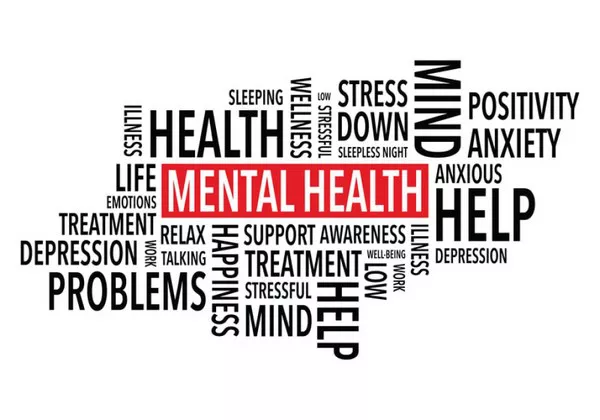In a significant development, the California Legislature has endorsed a pivotal element of Governor Newsom’s extensive, multi-year plan addressing behavioral health and homelessness. With the passage of two crucial bills, California’s voters will now have the opportunity, come March 2024, to usher in a modernized mental health system. These reforms channel substantial funds towards prioritizing Californians with the most pressing needs, those dwelling in encampments, or grappling with severe substance use disorders. Simultaneously, a bond allocation will facilitate the construction of new behavioral health facilities and housing, aimed at assisting over 100,000 individuals annually.
Today, the California State Legislature has greenlit two seminal bills aimed at rejuvenating the state’s behavioral health care system, thus catering to contemporary requirements. These bills commit billions of dollars to establish new behavioral health housing, usher in heightened accountability and transparency, and offer much-needed financial support for essential behavioral health infrastructure and workforce development across the state.
In response to these developments, Governor Newsom expressed his gratitude, acknowledging the profound personal stories shared by legislators, emphasizing the collective effort to address the mental health crisis. He particularly commended Senator Eggman, Assemblymembers Irwin and Wood, and extended special thanks to Mayor Steinberg for their critical role in steering these reforms. Governor Newsom highlighted that these measures constitute a pivotal step towards resolving the homelessness crisis and enhancing mental health services for children and families. He underscored that the onus now rests with the voters to endorse the most substantial overhaul of California’s mental health system in over half a century.
Senate Bill 326 (Eggman, D – Stockton) reimagines the Mental Health Services Act, aligning it with the present-day behavioral health system and service demands. These reforms encompass expanded services targeting individuals with substance use disorders, the prioritization of care for those grappling with severe mental illness, sustained funding for housing and workforce development, and continued investment in prevention, early intervention, and innovative pilot programs. This bill overhauls the care system, placing contemporary Californian needs at the forefront while instituting rigorous accountability measures to deliver tangible outcomes for all families and communities.
Assembly Bill 531 (Irwin, D – Thousand Oaks) encompasses a $6.38 billion general obligation bond designed to construct 10,000 new treatment beds and supportive housing units, ultimately serving over 100,000 people annually. This investment represents the most substantial expansion in California’s history concerning behavioral health treatment and residential facilities. The endeavor aims to create dedicated housing for individuals experiencing or at risk of homelessness, with specific provisions for veterans. These facilities will offer individuals grappling with behavioral health conditions a secure space to stabilize, heal, and receive ongoing support. Notably, the bond allocation includes a $1 billion set-aside exclusively designated for veterans’ housing.
These legislative milestones follow months of engagement with stakeholders across the state, including individuals and families with lived experience, healthcare professionals, youth groups, veterans organizations, educators, businesses, labor leaders, mental health advocates, first responders, and local officials. These dialogues have fortified Governor Newsom’s transformative proposal, garnering broader support for this historic modernization initiative.
Looking ahead, Governor Newsom has until October 14th to act on the legislation. Once endorsed, this modernization of the state’s mental health services system, along with the associated bond, will proceed to the voters for approval. Senate Bill 326 and Assembly Bill 531 will appear together on the March 2024 ballot as Proposition 1.
Reflecting on these developments, Senator Eggman, the author of SB 326, expressed gratitude for the support of colleagues in both the Senate and Assembly, underscoring the critical overhaul provided by these bills to the Mental Health Services Act and the infusion of much-needed resources into the state’s behavioral health care continuum. Senator Eggman emphasized the urgency of addressing the behavioral health crisis unfolding on the streets and the need for a more coherent and compassionate approach to community-based behavioral health care.
Assemblymember Irwin, the author of AB 531, stressed the significance of aiding vulnerable veterans grappling with homelessness by offering essential treatment for behavioral health challenges. Irwin recognized the decline in homelessness among veterans, largely attributable to successful programs like Veterans Housing and Homeless Prevention (VHHP). AB 531 and SB 326 will revitalize existing initiatives and expand resources to deliver housing and treatment services that target severe mental illness and substance use disorders.
Assembly Health Committee Chair Wood acknowledged the evolving landscape of behavioral health challenges and emphasized the inevitability of change. Wood commended Senator Eggman and Governor Newsom for their commitment to addressing these issues and ensuring that SB 326 addresses the evolving landscape, delivering essential housing and behavioral health services that countless Californians urgently require.
Mayor Steinberg, the original author of Proposition 63, the Mental Health Services Act, lauded these reforms as a vital step towards directing more resources to a unified set of services and strategies. This shift, Steinberg contends, is essential to alleviate the suffering of individuals living with mental illness, particularly those experiencing homelessness and intersecting with the criminal justice system. Mayor Steinberg expressed gratitude to Governor Newsom and Senator Eggman for championing these reforms, recognizing the Legislature’s prompt action in placing them before voters in 2024.
Throughout the legislative process, diverse advocacy groups, business and labor leaders, mayors, county leaders, children’s organizations, and individuals have responded positively to this historic and transformative modernization proposal. Their support underscores the urgency of addressing California’s mental health challenges and heralds a promising step towards comprehensive reform.


